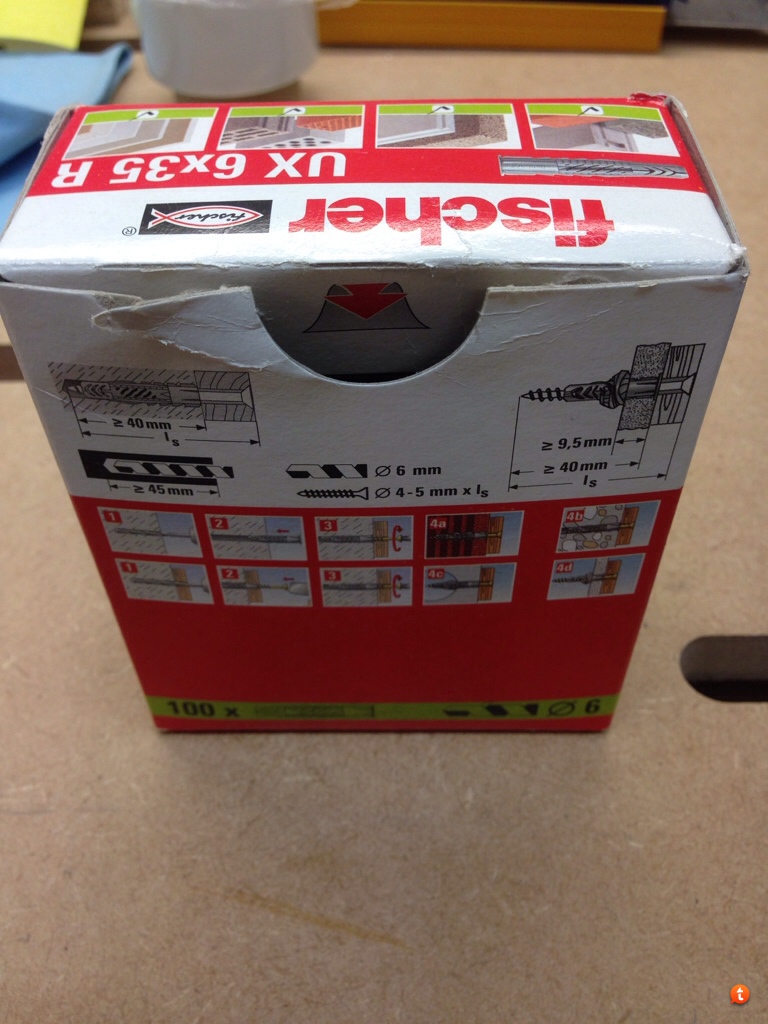custard
Established Member
I've got a series of fairly heavy shelves and brackets that need securing to both brick and breezeblock walls.
I've tried three different brands of rawlplugs, two different brands of 10mm SDS drill bits, and two different brands of M8 x 80mm screws.
With almost every combination the screw won't tighten sufficiently without rotating the plug in the hole. The one exception is a style of rawlpug that has a lip at the end, this works every time but the lip protrudes by about a mill, so it's no good for when you want the workpiece to be fastened flush against the wall.
I guess the options are,
-pack out the hole with Pollyfilla or some other kind of gunk
-try an M10 x 80mm screw (screws in this size aren't common and start to get pricey)
-trim off the protruding lip on the functioning brand of rawlpug or counterbore the workpiece (slow)
-going forward use a 9mm drill (but still need a solution for the existing holes)
-track down a brand of flush fitting rawlplugs that does what it says on the tin
Anyone got any (useful!) advice?
Thanks
I've tried three different brands of rawlplugs, two different brands of 10mm SDS drill bits, and two different brands of M8 x 80mm screws.
With almost every combination the screw won't tighten sufficiently without rotating the plug in the hole. The one exception is a style of rawlpug that has a lip at the end, this works every time but the lip protrudes by about a mill, so it's no good for when you want the workpiece to be fastened flush against the wall.
I guess the options are,
-pack out the hole with Pollyfilla or some other kind of gunk
-try an M10 x 80mm screw (screws in this size aren't common and start to get pricey)
-trim off the protruding lip on the functioning brand of rawlpug or counterbore the workpiece (slow)
-going forward use a 9mm drill (but still need a solution for the existing holes)
-track down a brand of flush fitting rawlplugs that does what it says on the tin
Anyone got any (useful!) advice?
Thanks



































